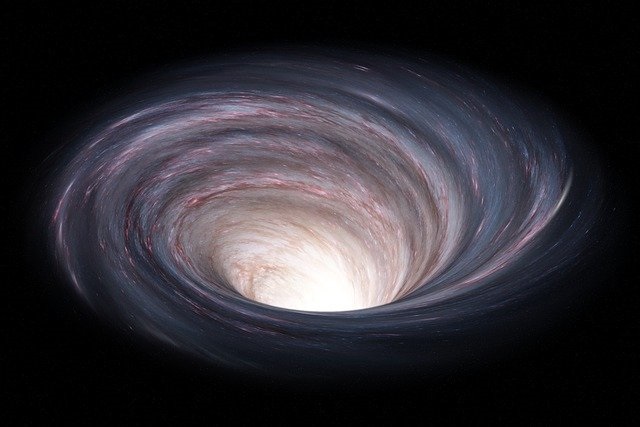Most of the time, to the extent that I discuss experiential vacuums, it is done under the assumption that they are inert and empty and numbing. To the extent that there is visible activity within them, it comes from free-floating defined discrete entities that sometimes cluster together to form what are for humans overstimulating tension-pocket experiences. When I first started writing this column, I did postulate an active form of stimulation that emanated from a vacuum. Because a vacuum had no boundaries of its own, I called such stimuli infinite vacuumized stimuli. In truth, this is the stimulation that emanates from entropy. It is how we experience entropy. Entropy, in its narrow scientific sense, is the random distribution of atoms in a vacuum. Obviously, we can’t directly experience the movements of atoms, so we indirectly experience entropy through the falling apart of things, the crumbling of things. On a psychological level, we experience entropy through random disintegration within our minds. Which is why experiential vacuums can be so dangerous for human beings.
Nevertheless, people who lived in traditional natural living environments had their own way of dealing with entropy. Now one might conclude from previous discussions with regard to my philosophical model that entropy in human living environments was to be found exclusively in experiential vacuums that were created by modern technological societies. Frictionless mediated technological spaces. Well, my thinking continues to evolve, and if it didn’t, then I would have nothing further to write about in my column. So, entropy can be found in traditional natural living environments. For example, in tropical living spaces, because the topsoil is so shallow, below it there is simply the numbing emptiness of dead soil that can grow nothing. That is a vacuumized soil. What holds the rich organic topsoil in place is the big surface roots of tropical trees. There is nothing that is grounding it from below. Of course, desert spaces are what happens to tropical spaces when the rich organic topsoil is blown away and nothing is left but the vacuumized topsoil underneath. People are very worried that the Amazon rain forest in Brazil could turn into one enormous desert if farmers keep trying to farm the jungle spaces there that just aren’t made to be turned into farms. The topsoil is just too thin to be used for agricultural purposes.
As one moves into more temperate climates, entropy manifests itself in the cold winter weather which leads to the shedding of leaves and the deep hibernation sleep of many animals. Here the entropic influence manifests itself in the numbing cold weather. Whereas in the tropics, the experiential vacuum is present all the time as one layer of experience, in more temperate climates, the experiential vacuum is an enveloping total experience for one part of the year.
At any rate, we see that there are numbing entropic aspects to be found even in more traditional natural living environments. But perhaps because humans there had the refuge of an organic grounding from which to confront the vacuum and deal with it, they devised an effective strategy for protecting themselves against its harmful effects. They filled the vacuum with spiritual entities, vacuumized figures which formed the foundation of everything from magical practices to religious observances. If they were animists, everything, both material and non-material had some sort of soul. Because of this, there was very little of the element of transcendence involved in the concept of souls for them. Rather, the notion of souls was a vehicle for people to develop perceptual boundaries for things in an environment where people tended to be overwhelmed by all the organic stimuli that tended to blur the outlines of both material and non-material phenomena.
As societies evolved, the spiritual entities they believed in came in the form of distinct transcendent beings: gods or a God, or lesser entities like saints, elves and trolls. They were believers in an organized distinct religious or spiritual dimension. Their spirit-filled vacuum spaces were separate from the physical entities that surrounded them in their villages and communities. For the most part, these entities had defined discrete boundaries. The exception to this pattern was the souls that inhabited people. The major purpose of human souls on a fundamental level in these more evolved traditional societies was to fight off the effects of entropy. The belief in souls in these societies generated the development of flowing blendable continual organic stimuli in people, which in turn gave people a strong sense of coherence, which in turn gave people a strong sense of self. Which in turn raised people’s sense of consciousness, which in turn helped to pull them out of the experiential vacuums in which they were living to some extent.
Today, religion seems to have a reduced importance in most people’s lives. Which may be one reason we are seeing so much psychopathology.


Artículos Relacionados: